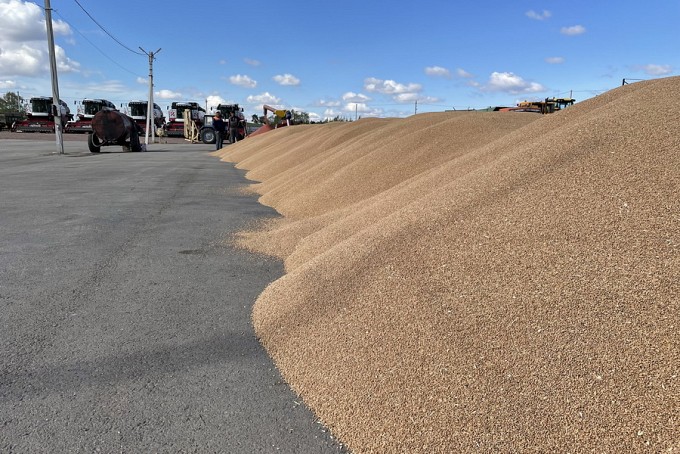
This season, Kazakhstani traders need to be very careful when concluding contracts for the supply of wheat abroad. This applies to both low-quality and high-quality wheat. Gulmira Abisheva, general director of Baltic Control Kazakhstan, drew attention to this when commenting on the start of shipments of grain from the new harvest to the ElDala.kz portal.
“It’s no secret that this year in Kazakhstan there are problems with the quality of wheat due to unfavorable weather conditions. Everyone knows this - Central Asia, Iran, China, and Europe. Therefore, there will be close attention to quality indicators. Traders are required to do a pre-shipment inspection of the shipments they send for export. In addition, you need to carefully approach the choice of elevator in order to be sure whether it will ensure the shipment of grain of the quality specified in the contract,” said Gulmira Abisheva.
According to experts, high-quality wheat of at least third class this year will make up 30 percent of the total grain (about 4 million tons). And 70% of the harvest will be wheat of classes 4 and 5, as well as non-class grain with a low falling number and a large proportion of sprouting. There is a demand for this grain, Uzbekistan, Tajikistan, Afghanistan, China are interested in it, and there is also interest from Iran. The benefit for the buyer is that such grain is cheap, but at the same time has high levels of protein and gluten. Its only disadvantage is its low falling number, which makes it unsuitable for baking purposes. However, this does not matter for processors; they use this grain to produce feed flour, alcohol, and to extract protein and gluten from it.
At the same time, the main risk for the seller when selling sprouted grain is the presence of toxins in it. This is no longer a question of quality, but of product safety. And all importing countries pay increased attention to it, especially when it comes to China.
“Kazakh elevators, which have the right to ship grain to China, underwent joint inspections with the participation of specialists from China itself and the Ministry of Agriculture of the Republic of Kazakhstan. If this year a precedent arises for the supply of unsafe grain, then next year such elevators risk not receiving permission to continue supplies to China. Therefore, the elevator’s task is to competently prepare incoming grain for storage,” emphasized Gulmira Abisheva.
To stop the germination and development of toxins in grain arriving for storage, it must be dried not to the standard 14% humidity, but to 11.5-13%. This is the task of the elevator.
In addition, the buyer pays attention to the starch content - not lower than 50%. This is also an important indicator for processors.
If the buyer discovers a discrepancy with the indicators stated in the contract, he can impose penalties on the seller - up to $5 per ton (for example, for exceeding the mycotoxin content). Therefore, traders should not overestimate quality indicators in contracts in order to avoid financial losses.
“The first deliveries of non-grade wheat for export are already underway. So far there have been no complaints from buyers. But it is necessary to carry out pre-shipment inspection for all export shipments,” said Gulmira Abisheva.
In addition, the expert draws attention to the fact that buyers are not always conscientious. And some of them may try to take advantage of the situation and try to manipulate data on the quality of supplied Kazakh wheat. In this case, it is also important to carry out a pre-shipment quality inspection.
“Just the other day, one of the Kazakh traders received a claim from an Uzbek buyer that his third-grade wheat had a low falling number. Although this is high-quality grain, we carried out an inspection, the number of drops there is above 200. Now our inspector has flown to Uzbekistan to understand the situation and prove the exporter is right,” the expert said.
In general, Gulmira Abisheva draws attention to the fact that this season elevators and traders need to have a good understanding of what and where they are loading. One should not think that supplying fodder is easier than supplying high-quality wheat. Importers pay much closer attention to the safety of this product.